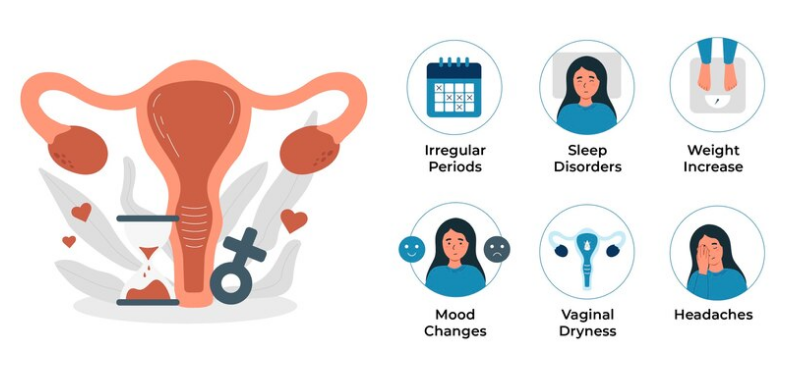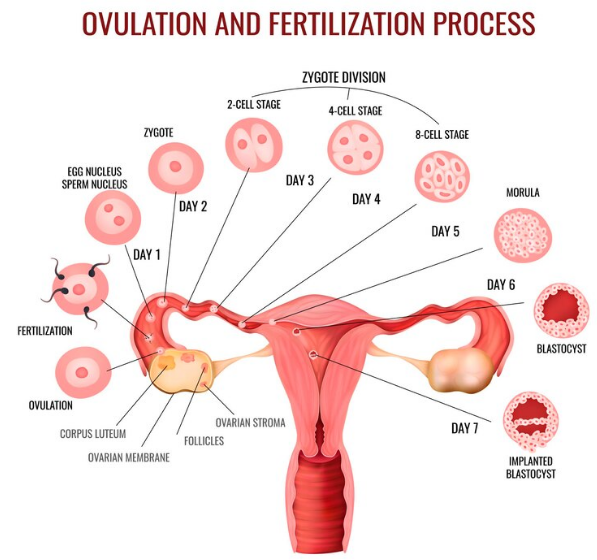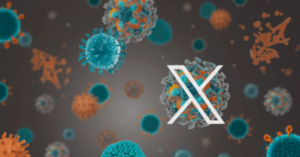What Every Woman Should Know?
Polycystic Ovarian Disorder (PCOD) and Polycystic Ovary Syndrome (PCOS) – these abbreviations have become familiar in discussions about women’s health. Be that as it may, what do they mean, and how would they contrast? In this article, we’ll delve into the complexities of PCOD and PCOS, aiming to provide a comprehensive understanding for every woman.
Table of Contents
Introduction
Definition of PCOD and PCOS – PCOD and PCOS are two distinct but related conditions affecting the ovaries, with each having unique characteristics and implications for women’s health. Polycystic Ovarian Disorder is often a precursor to Polycystic Ovary Syndrome, and both conditions share some common symptoms.
Prevalence and Impact on Women’s Health – These conditions are more prevalent than one might think, affecting a significant number of women worldwide. Understanding their impact on reproductive health, emotional well-being, and overall quality of life is crucial.
Understanding PCOD
Polycystic Ovarian Disorder Explained – PCOD is characterized by the presence of small cysts on the ovaries, disrupting the regular menstrual cycle. These cysts are underdeveloped follicles that fail to release eggs. The hormonal imbalances associated with PCOD contribute to various symptoms.
Causes and Risk Factors – While the exact cause of PCOD remains elusive, factors such as genetics, insulin resistance, and hormonal imbalances play a role. Recognizing the risk factors is essential for early detection and management.
Common Symptoms – Irregular periods, acne, weight gain, and excessive hair growth are common symptoms of PCOD. Understanding these signs can prompt timely medical intervention.
Diagnosing PCOD – Diagnosing PCOD involves a combination of medical history assessment, physical examinations, and diagnostic tests. Early detection enables better management and improved outcomes.
Unpacking PCOS
Polycystic Ovary Syndrome Demystified – PCOS is a more complex condition that encompasses not only ovarian cysts but also a range of hormonal and metabolic imbalances. It often involves an increased level of androgens, leading to a variety of symptoms.
How PCOS Differs from PCOD – While PCOS and PCOD share similarities, PCOS involves additional symptoms such as irregular ovulation, insulin resistance, and potential long-term complications like diabetes and cardiovascular issues.
Symptoms and Complications – From menstrual irregularities to fertility challenges and an increased risk of diabetes, PCOS poses multifaceted challenges. Recognizing these symptoms is crucial for timely intervention and holistic management.
Diagnosis and Medical Approaches – Diagnosing PCOS requires a comprehensive evaluation, including blood tests, imaging studies, and a detailed medical history. Medical approaches often focus on regulating menstrual cycles, managing symptoms, and addressing underlying hormonal imbalances.
Battle of the Abbreviations
Key Differences between PCOD and PCOS – Understanding the nuances of these abbreviations is vital. PCOD is a specific ovarian disorder, while PCOS is a syndrome encompassing broader hormonal and metabolic irregularities.
Misconceptions and Common Myths – The confusion between PCOD and PCOS often leads to misconceptions and myths. Dispelling these misconceptions is essential for accurate information and improved health outcomes.

Impact on Fertility – Both PCOD and PCOS can impact fertility, but the mechanisms differ. PCOD may lead to irregular ovulation, while PCOS involves a range of factors affecting fertility. Seeking early intervention is crucial for women planning to conceive.
Emotional and Psychological Aspects – The emotional toll of dealing with PCOD or PCOS should not be underestimated. From body image issues to the stress of fertility challenges, addressing the emotional and psychological aspects is integral to holistic care.
Lifestyle Management
Dietary Changes for PCOD and PCOS – Nourishment assumes a critical part in dealing with these circumstances. Adopting a balanced diet with a focus on nutrient-dense foods can help regulate hormones and mitigate symptoms.
Importance of Regular Exercise – Regular physical activity is beneficial for women with PCOD and PCOS. Exercise helps in weight management, improves insulin sensitivity, and contributes to overall well-being.

Stress Management Techniques – Stress can exacerbate symptoms of PCOD and PCOS. Incorporating stress management techniques such as meditation, yoga, or counseling can positively impact both physical and mental health.
Role of Adequate Sleep – Quality sleep is crucial for hormonal balance. Establishing healthy sleep patterns can contribute to the overall management of PCOD and PCOS.
Treatment Options
Medical Interventions for PCOD – Medical interventions for PCOD aim to regulate menstrual cycles, manage symptoms, and address hormonal imbalances. Medications such as oral contraceptives and anti-androgens may be prescribed.
Pharmaceutical Approaches to PCOS – PCOS treatment often involves medications to regulate ovulation, manage insulin resistance, and address specific symptoms. Individualized treatment plans are essential for effective management.
Integrative and Holistic Treatments – Complementary therapies, including acupuncture, herbal supplements, and lifestyle modifications, can complement conventional treatments for both PCOD and PCOS.
Fertility Treatments – For women facing fertility challenges due to PCOD or PCOS, fertility treatments such as in vitro fertilization (IVF) may be considered. Talking with a fruitfulness expert is critical for customized direction.
Supporting Women's Health
Importance of Regular Check-ups – Regular check-ups with healthcare providers are essential for monitoring the progression of PCOD and PCOS. Early recognition of any inconveniences takes into consideration opportune mediation.
Advocacy for Awareness – Creating awareness about PCOD and PCOS is vital for early diagnosis and destigmatizing these conditions. Advocacy efforts contribute to improved support and understanding.

Community Support and Resources – Support groups and online communities provide valuable resources for women dealing with PCOD and PCOS. Sharing experiences and information fosters a sense of community and empowerment.
Emotional Well-being – Addressing the emotional well-being of women with PCOD or PCOS is integral to holistic care. Mental health support, counseling, and open communication contribute to overall well-being.
Personal Stories
Real-life Experiences with PCOD – Sharing personal stories of women navigating PCOD provides insights into the challenges and triumphs of managing the condition. Real-life experiences offer support and encouragement.
Narratives of Women Dealing with PCOS – Similarly, narratives from women dealing with PCOS shed light on the diverse experiences associated with this syndrome. These stories break down stereotypes and promote understanding.
The Importance of Sharing Stories – Encouraging women to share their stories fosters a sense of solidarity. It contributes to reducing the stigma surrounding reproductive health issues and encourages open conversations.
Breaking the Silence around Reproductive Health – The societal silence around reproductive health often perpetuates myths and misconceptions. Breaking this silence is essential for empowering women to prioritize their health and seek support.
Future Outlook
Ongoing Research on PCOD and PCOS – The medical community continues to conduct research to deepen our understanding of PCOD and PCOS. Ongoing studies may lead to new insights and treatment modalities.

Advances in Treatment and Management – Advances in medical technology and treatment options offer hope for improved management of PCOD and PCOS. Staying informed about these advancements is crucial for women and healthcare providers alike.
Empowering Women through Knowledge – Empowering women with knowledge about their reproductive health is a key aspect of managing PCOD and PCOS. Informed decisions and proactive healthcare contribute to better outcomes.
The Role of Technology in Women’s Health – Technological advancements, from mobile health apps to telemedicine, play a role in enhancing women’s access to information and healthcare services related to PCOD and PCOS.
Conclusion
Recap of Key Points – In conclusion, understanding the Battle of the Abbreviations – PCOD vs PCOS – is pivotal for every woman. Recognizing the differences, addressing misconceptions, and prioritizing holistic health management are crucial steps in navigating these conditions.
Encouragement for Women to Prioritize Health – Women are encouraged to prioritize their health, seek regular check-ups, and embrace a holistic approach to well-being. The journey may be challenging, but with knowledge and support, women can effectively manage PCOD and PCOS.
Final Thoughts on the Battle of the Abbreviations – The battle is not just medical but societal. By fostering awareness, breaking the silence, and supporting one another, women can conquer the challenges posed by PCOD and PCOS.
Frequently Asked Questions
PCOD can be a precursor to PCOS, but not every woman with PCOD will develop PCOS. Regular check-ups and early intervention can help manage and prevent progression.
PCOS can impact fertility by causing irregular ovulation and hormonal imbalances. Nonetheless, with suitable clinical intercessions, numerous ladies with PCOS can imagine.
While lifestyle modifications, such as a balanced diet and regular exercise, can help manage symptoms, it’s essential to consult with healthcare professionals for personalized advice.
PCOD is more common, but the prevalence of PCOS is also significant. Both conditions require attention, and early diagnosis is crucial for effective management.
Yes, emotional well-being plays a role in managing symptoms. Stress and emotional challenges can exacerbate symptoms, emphasizing the importance of mental health support.

10 Proven Benefits of Bananas for Health and Well-being
Bananas are known for their natural sweetness, ease of peeling and rich nutrition. This makes them one of the most commonly consumed fruits in the world. Though bananas originated in

Disease X: The Next Pandemic?
Emerging infectious diseases pose one of the greatest threats to human health and global stability. One of them, “Disease X” has intrigued scientists and WHO, as it represents the potential

The Remarkable Benefits of Eating Acorn Squash in Winter
Acorn squash has all the qualities that make it special. Winter calls for warmth, comfort, and nutrition, and acorn squash provides all of these. This vegetable is not just delicious

Omega-3 Fatty Acids
Omega-3 fatty acids play a very important role in the nutrients needed to maintain overall health. As people are getting to know about it, its popularity is increasing day-by-day. These
